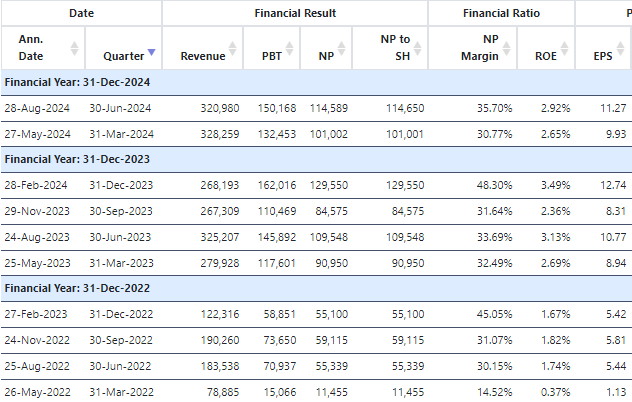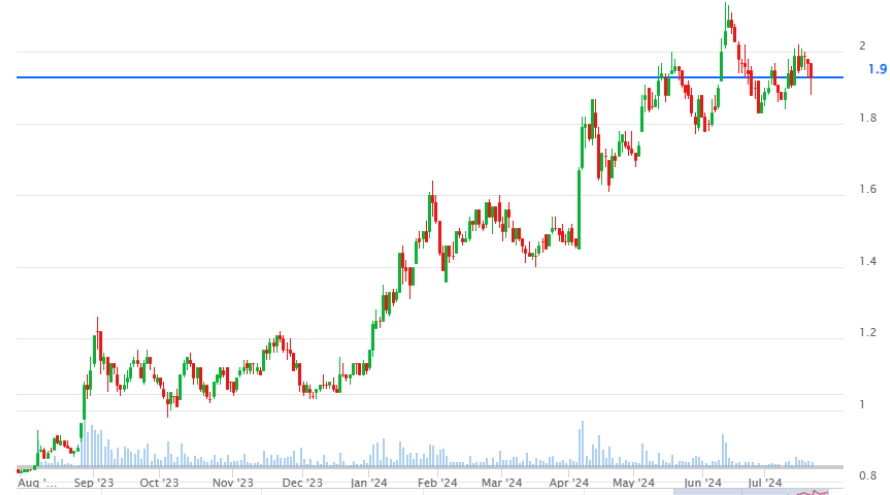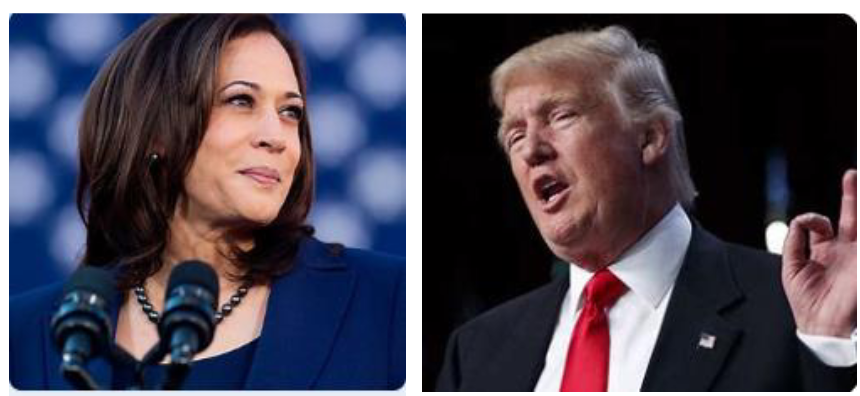Advantages and Disadvantages of International Trade - Koon Yew Yin
Koon Yew Yin
Publish date: Mon, 03 Apr 2023, 09:49 AM
Barely four months in power, Prime Minister Anwar Ibrahim has made whirlwind tours to eight countries, namely – Indonesia, Brunei, Singapore, Thailand, Philippines, Turkey, Saudi Arabia, Cambodia and China.
Anwar’s main aim is to remove all trade barriers between Malaysia and other countries to encourage more trade for mutual benefit.
He landed on 30th March. During his short visit to China he has secured a historic commitment of RM170 billion in investments from China. He expects President Xi Jinping will help to complete the High Speed Rail between KL and Singapore.
I must congratulate our PM Anwar for securing Rm 170 billion investment from China within the 3 days trip to China. Nevertheless, it is my duty to point out the advantages and disadvantages of international trade and also the loopholes for corruptions.
For example: Recently, the Kuwaiti criminal court published the 68 page judgement, which sentenced the lawyer to 7 years in jail and the other four to 10 years each, accuses the gang of conspiring to launder huge backhanders raised by Najib in Malaysia through bogus inflated contracts with Chinese companies. These included CCCC’s East Coast Rail Link for which CCCC agreed to secretly pass back $7 billion into companies created by Jho Low, such as Al Asbar and Al Mouniratayen General Trading which were fronted by Sheikh Sabah in Kuwait.
Much of the money was then funneled back into Malaysia via a bogus land purchase from 1MDB, the judgement confirms, and then swiftly passed to the IPIC sovereign wealth fund in Abu Dhabi, which had agreed to rescue the plundered Malaysian ‘development fund’ from its immediate debts as part of a cover up operation in return for a hefty recompense.
International trade
Trade is not without its problems. One country can profit greatly from it by exporting, but not importing, goods and services. It can also be used to undercut domestic markets by offering cheaper, but equally valuable goods.
There are many advantages and disadvantages of international trade to consider, in all its various forms. Here are the key points to consider.
Here Are the Advantages of International Trade
1. It provides a foundation for international growth.
Companies that are involved in exporting can achieve levels of growth that may not be possible if they only focus on their domestic markets. This allows brands and businesses an opportunity to achieve sustained revenues from a diversified portfolio of customers in several markets instead of a limited customer base in a single home market.
2. International trade improves financial performance.
Brands and businesses which assert themselves in foreign trade work can increase their financial performance. This allows them to augment the returns they achieve on their investments into research and development. By rotating the products or services through the global market, the commercial lifespan of each opportunity can be amplified, expanding what existing products and services can provide. This benefit can even be achieved if a domestic market is no longer interested.
3. It spreads out the risk a brand and business must assume.
Organizations can better protect themselves from risk thanks to international trade because of the amount of diversification that can be achieved. Whether it is a financial disaster, like the Great Recession of 2007-2009, or a natural disaster like Hurricane Katrina, a company with an international presence can survive and even maintain profitability without domestic customer support. A home market may be unstable, but international trade can still let the brand and business be stable.
4. International trade encourages market competitiveness.
When a brand and business compete in several markets simultaneously, then it must focus on its competitiveness for it to be able to thrive. By observing a larger range of trends because of their greater level of global market access, brands and businesses can focus on quality, design, and product development improvements so that they can continuously improve and diversify.
5. International exchange rates can be beneficial to a business.
Brands and businesses involved with international trade can further reduce their risk by taking advantage of monetary exchange rates. If a company does most of its trading in US dollars, then trading with Japan to spread the risk of the exchange rate between the yen and the dollar can potentially add to the profits of the company. The same could be said of the euro or the pound to the dollar.
6. Revenue streams have some protection.
Although all risk cannot be eliminated from international trade, a series of contracts, insurance, and financial instrument trading can help to protect the revenue streams a brand and business is able to develop.
7. It can be used as a way to get around high levels of domestic competition.
A domestic market can have several products or services that are like what a new brand and business is trying to offer. Instead of competing for a small sliver of that domestic market, going through international trade can help an organization target similar foreign markets where competition may be much lower. Over time, the experiences gained in the foreign market can help an organization be able to establish a stronger domestic presence as well.
Here Are the Disadvantages of International Trade
1. There is always a political risk involved with international trade.
Different countries provide their own political risks at varying levels, while domestic politics changes over time and presents an ongoing challenge. A government can change laws in a discriminatory fashion or create regulations that directly impact a specific organization.
2. There can be severe exchange rate risks.
Many businesses focus on emerging markets for their products or services because it can greatly extend the lifespan of the businesses. This also means the exchange rates in those emerging markets may fluctuate wildly, making it difficult to forecast finances for budgeting purposes. The value of assets and liabilities that are in foreign currencies creates the potential of a brand and business becoming immediately less competitive overnight, resulting in steep revenue losses.
3. International trade also presents cultural complications.
Different cultures have different attitudes, standards, and expectations that can create problems for a brand and business. Failing to consider the expectation a different culture may have can lead to mistakes that damage the reputation of the brand and can be very costly to the bottom line. Any step of the sales process could create an offense. Something as simple as inappropriate packaging can be enough to permanently damage a brand’s reputation.
4. It has a credit risk that must be specifically managed.
Many brands and businesses tend to overlook the risk of non-payment when they begin to operate in the world of international trade. Credit risks can be managed by obtaining insurance or a letter of credit, but customer finances and credit can still impact the number of potential sales that can be received within a market. Without an understanding of the B2B and B2C credit potential of an international market, the success a brand and business can receive will be hit or miss at best.
5. International trade increases the risk of proprietary information theft.
Going into an international market with a product or service increases the risk of another brand or business stealing proprietary information, marketing concepts, or even a personal identity.
The advantages and disadvantages of international trade can all be managed appropriately with good market research and an understanding of foreign cultures. There will always be brands and businesses that succeed more than others in any trade deal. The goal must be to evaluate these key points so that a full understanding of what to expect can be obtained so participation levels can be properly gauged.
More articles on Koon Yew Yin's Blog
Created by Koon Yew Yin | Sep 06, 2024
Water pollution is a huge challenge for freshwater in the UK, impacting our rivers, streams, and lakes and the wildlife that call them home.

Created by Koon Yew Yin | Sep 03, 2024
State housing and local government committee chairman Datuk Mohd Jafni Md Shukor said demand for properties in Johor has gone up since last year’s announcement about the SEZ.

Created by Koon Yew Yin | Aug 30, 2024
KSL announced its total 4 quarter EPS of 42.3 sen and its net tangible asset (NTA) backing of RM3.86. It is selling for less than 50% of its net tangible asset (NTA). KSL is undervalued. Its share...

Created by Koon Yew Yin | Aug 26, 2024
In 2012, I wrote my first book “Malaysia: Road Map For Achieving Vision 2020” which was launched by former Financial Minister Tengku Razaleigh.

Created by Koon Yew Yin | Aug 26, 2024
On 21st Aug 2024, I posted my article with the title “90% of investors lose money in the stock market”. Now I will tell you how to make money from the stock market.
Created by Koon Yew Yin | Aug 26, 2024
A few years ago, one relative asked me to invest for him. I told him to let one famous professional fund manager manage his life saving. I cannot mention his name. He teaches Technical and Financial..

Created by Koon Yew Yin | Aug 19, 2024
On 14th Aug 2024, I posted my article “Why people are rioting across UK”. Now I want to tell you why do people riot?

Created by Koon Yew Yin | Aug 19, 2024
If I knew politicians are so well paid, I should have been a politician. A few days ago, one old friend who migrated to Australia about 40 years ago, visited me. He told me that he was a Member of P..

Created by Koon Yew Yin | Aug 14, 2024
Riots have spread across numerous cities and towns in England, and in Belfast in Northern Ireland, over the last week in the worst outbreak of civil disorder in Britain for 13 years. Police have ma...

Created by Koon Yew Yin | Jul 30, 2024
The new poll, conducted between July 22-24 and released Sunday, found that Harris’s approval rating had surpassed Trump’s in Wisconsin, Pennsylvania, Minnesota, and Michigan. In Michigan, Harris was..


















